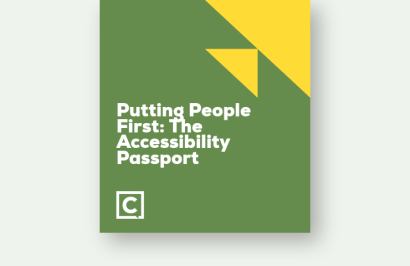I saw an interesting convergence of news stories from both the UK and across the pond this week, both of which had a recruitment spin to them... About a fortnight ago, here in the UK, our Deputy Prime Minister Nick Clegg launched the government's "Business Compact" on social mobility. There's a range of provisions involved in the scheme, a lot of them aimed at reducing the impact of a "jobs for the boys" and "who you know, not what you know" culture in UK recruitment. There's material to help teachers and communities to raise aspirations in schools. Amusingly for those who've followed the stories about Nick Clegg's own rise to power there's guidelines on broadening opportunities for young people to gain work experience without needing to know someone "on the inside" and some provision to ensure that internships are open and transparent and paid at least minimum wage or expenses.
So far so good, and over 100 companies have already signed up to be part of it, including big names like HSBC, Tesco, Asda, Coca Cola and BP. But it was the final provision mentioned in the press release that really jumped out at me: "recruit fairly and without discrimination, using application forms that don’t allow candidates to be screened out because they went to the wrong school or come from a different ethnic group (including through using name-blank and school-blank applications where appropriate)."
It's a great idea, and when you start to unpick it, any initial objections around needing to identify candidates are easily debunked. But from a technological point of view (given that most applications processes these days are done online and/or managed electronically) it becomes a little trickier. Should we actually not ask for name and school/university details at all on the application? Or do we ask for them, but assure the candidate they'll be hidden from the hiring manager during the early stages of selection (in much the same way as Equal Opportunities info is kept separate). At some point the hiring manager is going to need to know the information, you can't very well invite and greet "candidate 123456" at an interview without seeming a little odd. And given the great drive there is among most organisations we work with to build their employer brand, improve the candidate experience and offer a more personal service it's hard to see exactly how to do this anonymously.
A lot of recruiters are moving to a more CRM (Candidate Relationship Management) led approach, but it's much harder to build a connection (or source from social networks like LinkedIn) when you're actively trying to avoid indirect discrimination. I'm sure the more enlightened ATS providers will figure out some kind of workaround in short order (although in the past I've found making even the smallest changes in some systems fraught or nigh on impossible!) and one vendor I've spoken to tells me it should be an easy fix, for them at least. But is all this a storm in a teacup? And do organisations really need (and need to be seen to) to work on avoiding this kind of name/age/background-based discrimination by their hiring managers...
Well, that leads us neatly across the Atlantic to the other story that caught my eye. A story that suggests that even the kind of big names you'd expect to be whiter than white in their recruiting and hiring practices may not be quite as straightforward as you'd think...
This coming week, a class action lawsuit will be heard in San Jose, which makes some pretty damning allegations and to which some pretty interesting evidence has been submitted (and subsequently released for public scrutiny). In a nutshell, it's alleged that Google, Apple, Pixar, Lucasfilm, Adobe, Intel, and Intuit conspired to keep labour costs low, prevent employee mobility between companies and limit the potential of employees to negotiate higher salaries.
The following allegations have been made: - That the companies actively agreed not to poach employees from each other. - Agreed not to enter bidding wars for talent with each other and most gob-smacking of all: - They agreed not to simply ignore applications from candidates employed at each others businesses and not offer them roles AND notify their current employer that they were trying to switch jobs! One piece of evidence alleges that knowledge of these arrangements went right to the top, including Steve Jobs himself. If the class action is successful then damages could be paid to any salaried employee of any of the companies throughout a four year period. We'll definitely be keeping an eye on this one...



